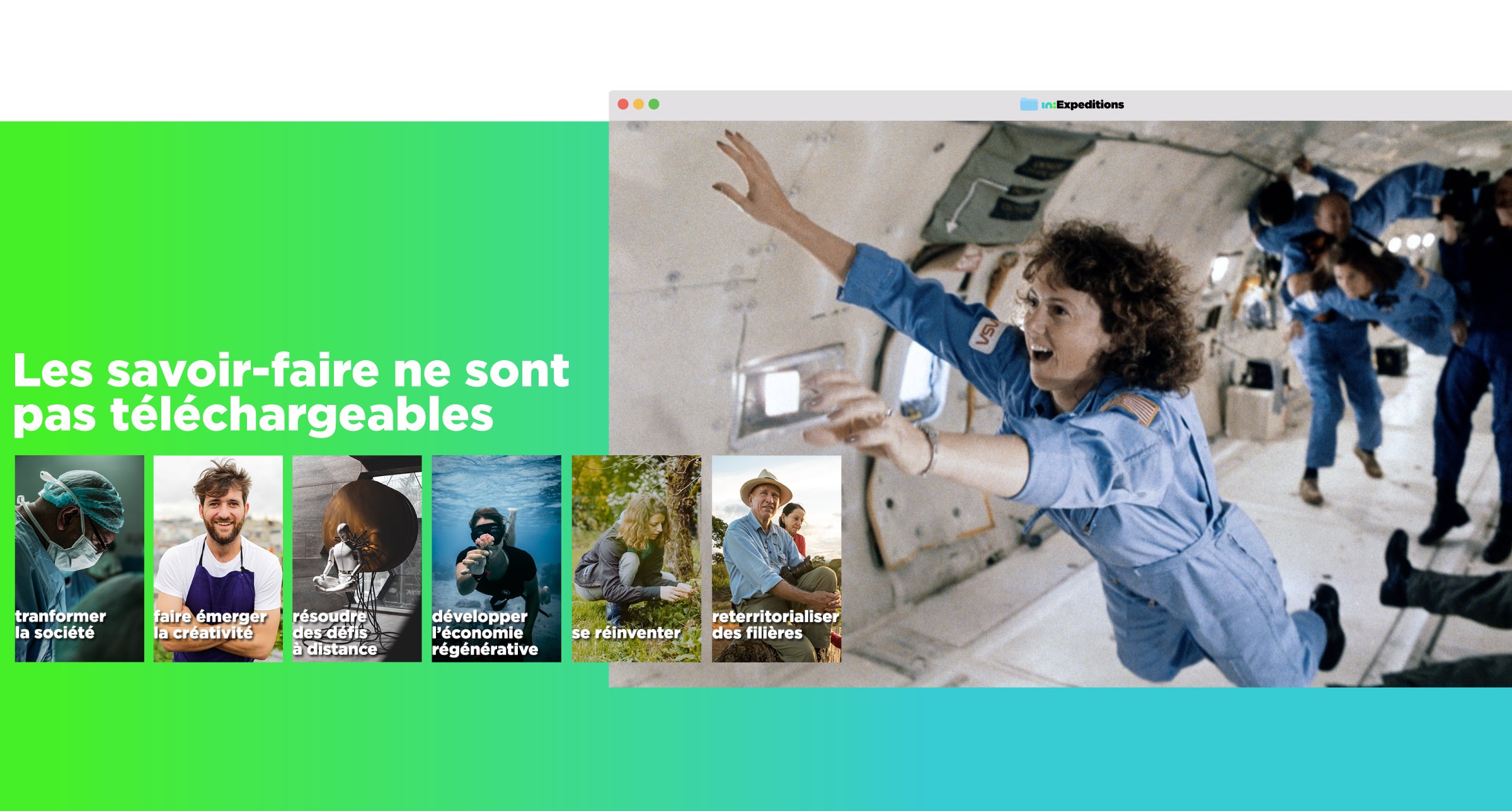

SURVEY (2/5) “Distance learning” 🕵️
Exhausted. Out of breath. 65% of students feel this fatigue (study: Sciences Po Bordeaux, January 2021). However, how many of them, out of the remaining 35%, are remaking the world remotely? Is online engagement a new phenomenon? Did the screens put the students to sleep? Survey.
Covided but not depoliticized
Let's start by breaking the cliché of depoliticized youth. Certainly, students have abandoned traditional channels of engagement (unions and political parties). But don't worry, they haven't become selfish, lazy, and amorphous. Far from it. Their commitment simply takes on more ad hoc forms. More local. Less institutional. In 2020, 38% of young people aged 18 to 30 indicated that they participated in the activities of an association. This figure is 4 points higher than our European counterparts, and has been constantly increasing over the last three years (DJEPVA youth barometer 2020).
And one thing is certain: COVID did not demobilize students. On the social issues that drive them, such as the climate crisis, social inequalities, sexism or racism; their beliefs are unchanged, even reinforced. “The ongoing crisis accentuates all the inequalities that were already present” explains Samantha Peicheux, a master's student in Social and Solidarity Economy at Sciences Po Bordeaux. “I have all the more the impression that my curriculum makes perfect sense in this context.” A determination shared by the majority of young people, according to the observations of the Belgian sociologist Geoffrey Pleyers.
“The ongoing crisis accentuates all the inequalities that were already present”
From “beat the pavement” to “beat the keyboard”
And students aren't content to be full of beliefs. They are taking action, COVID or not. 100% distance encouraged them to push the limits of their activism. To rethink their supports and their methods of engagement. Fiona Steffan, a master's student in biology in Lyon and particularly mobilized on the subject of global warming, experienced this change during her mobilization for climate law. She describes her new activism as “citizen lobbying”: “I share information on social networks, I sign petitions, I send letters to MPs.” A new form of activism that has been widely democratized: in 2020, almost one in two young people signed a petition or defended a cause on the Internet, a blog or a social network.
In the same way, student associations in higher education institutions are reinventing themselves. They tackle the subject of isolation and student discomfort head-on. They offer online events. They broadcast content on their subjects while waiting to be able to bring students together again. Thierry Picq, professor at EM Lyon, says he is “struck by the vitality of the school's associative life” despite the health context that limits meetings. An observation shared by Denis Boissin, deputy director of Skema Business School, who goes so far as to say that COVID has been “an accelerator for associative life”, since online events have “given incredible visibility to associations that were previously active on their campus only”.
Ultimate proof that screens did not put young people on standby (for those who still needed them): COVID represented an additional reason to get involved for young people. During the lockdown period, they were the ones who volunteered the most time in a group or association (22% compared to 7% for their seniors). Among those who have heard about the jeveuxaider.gouv platform, they represent those who registered the most to offer their help (18% compared to 10% of all French people). They also provided services to frail people or healthcare workers more often (22% compared to 17% for those over 30). (CREDOC - Living Conditions and Aspirations Survey, April 2020)
“I share information on social networks, I sign petitions, I send letters to deputies” 🏛
What about online activism
The students therefore redoubled their energy to continue their activist, associative or student involvement. But despite all the possibilities offered by digital technology, their frustration remains great. Their sense of powerlessness is gaining ground.
Obviously, the majority of student life events cannot be transposed to digital format. And for students, it's a hard pill to swallow. Even while doing everything possible to transform the cultural and sporting events he organized at his engineering school, Gauthier Bouchenoire paid for this year remotely. “It is a real life in parallel with the school that has been completely destroyed by this situation” he regrets.
Beyond the problem of feasibility, there is the question of the real impact of online events. Louis Claret, a business school student and an avid user of Twitter to share his social and ecological beliefs, is increasingly questioning his online activism: “Sharing information on social networks gives a good conscience, but it doesn't change anything! Surface activism must be complemented by concrete action that will make a difference.”
“Surface activism must be complemented by concrete action that will make a difference” ✊
Unlocking commitment
Such is Louis' intuition: we will not change the world through online petitions. To have a real impact, digital activism must be complemented by concrete action. Demonstrations. Boycotts. Associative events.
Today, online engagement offers a certain convenience: it allows students to act without leaving their room. It is “à la carte”, perfectly adaptable to the availability and interests of each person. Tomorrow, when the health context allows it, youth activism will also be played out on the ground, outside the screens. It will then be necessary to prove that this year of digital activism was not in vain, and to match actions with words. What will be the consequences of this remote year on their methods of action and their feeling of making a difference? Only the coming months will tell us that.
Did the screens turn off the students? Certainly not. Young people are more alert than ever. They are ready to raise mountains to build the famous “world after” that they dream of, more just, greener, more inclusive. Let's just hope that they will be able to unwind their commitment when the time comes.
